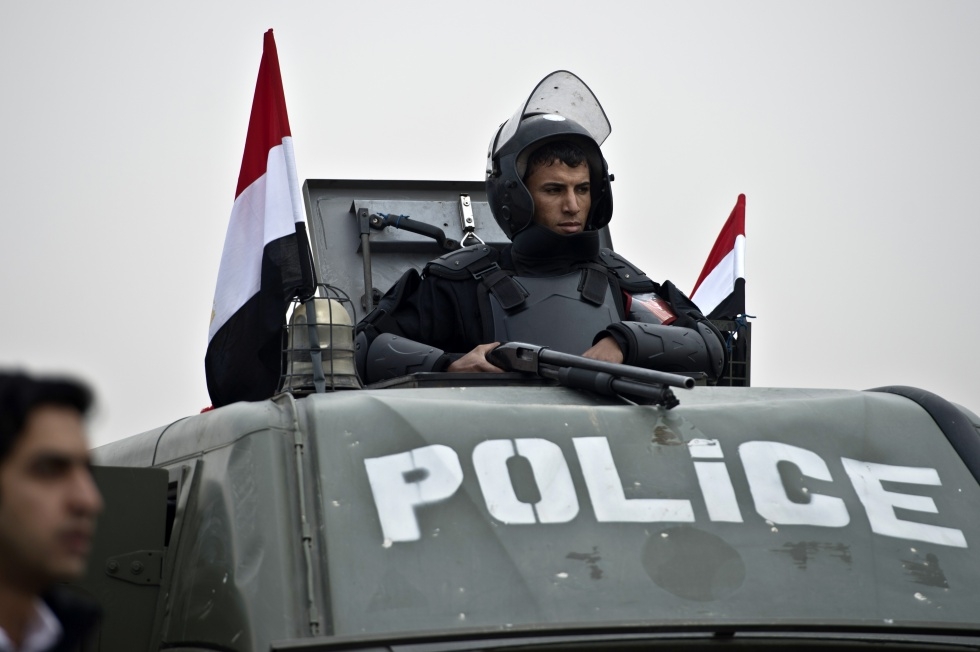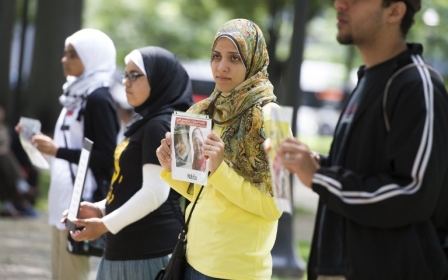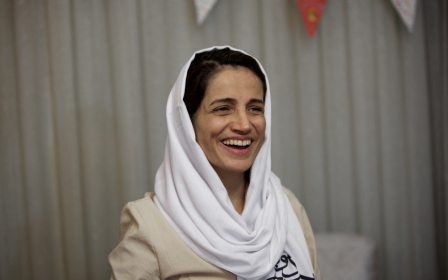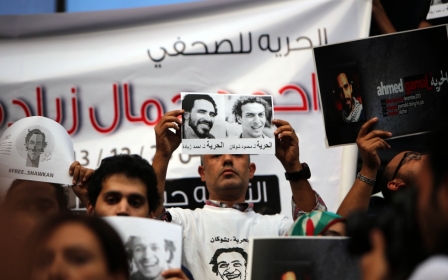Rights groups criticise Egypt ahead of UN human rights review

GENEVA - Egyptian authorities have failed to address grave international and human rights law violations, NGOs and human rights lawyers have said.
The criticism comes as the UN is scheduled on Wednesday to examine Egypt’s human rights situation, the first review of its kind since the 2011 uprisings.
The so-called Universal Periodic Review (UPR) will bring together UN member states, human rights groups and Egyptian officials in Geneva to review the country’s recent human rights record. The body will then issue a statement and recommendations going forward and Egypt will have until March to respond.
Ahead of the 5 November meeting, Human Rights Watch called on the UN to condemn the “most dramatic reversal of human rights” in the country’s history, which it insists has happened since President Mohammed Morsi was ousted in July 2013. HRW also criticised the UN Human Rights Council, as well as many Western countries and delegations, for failing to send a signal to the former field marshal and now President Abdel Fatah al-Sisi that human rights are a priority.
Instead these countries have been "indulging the al-Sisi administration's wish to return to business as usual," the group said in a statement. Sisi was voted into office this May in a controversial election, which saw the main opposition Muslim Brotherhood Party banned.
Amnesty International also criticised Egypt ahead of the review calling on UN member states to take “robust action […] to stop a major crackdown on Egyptian NGOs, challenge impunity for human rights violations and lift sweeping restrictions on freedoms of expression, association and assembly".
Wednesday’s review is only Egypt’s second under the UPR mechanism of the United Nations Human Rights Council (HRC). The country underwent its first review four years ago on 17 February 2010 when it received 165 recommendations.
Former President Hosni Mubarak accepted 119 of the recommendations and vowed to enact reforms, but was swept from power in January 2011 by a popular uprising against his 30-year rule, which was noted for various human rights abuses.
While Egypt held its first free presidential elections in 2012, the country’s first elected president - Muslim Brotherhood’s Mohamed Morsi - was ousted in July 2013.
The incoming military authorities subsequently launched a severe crackdown on almost all opposition groups, a move which has seen scores imprisoned or killed and sparked fierce protest from rights groups.
However, Egypt’s national report on human rights – submitted to the Human Rights Council ahead of the review – has rejected much of this criticism and insists that Egypt is in line with its UPR obligations made in 2010.
Under this review, compiled from December 2013 to October 2014 and conducted under the supervision of several ministers, the Egyptian authorities conclude that they have already implemented 112 recommendations. A further 14 are also “being examined” and are “in the course of being implemented,” the report said.
According to the report, the newly adopted Constitution on 18 January 2014 “represented a … qualitative transformation towards improving the human rights record in Egypt…[and] makes respect and protection of rights and freedoms part of the national political system".
The report further states that the Constitution guarantees the right to peaceful strikes, the formation of civil associations and institutions and ensures citizens’ enjoyment and rights and freedoms. It also seeks to “illustrate acts of violence and terrorism carried out by elements of the Muslim Brotherhood in Egypt,” and highlights a string of human rights violations carried out under Morsi.
International lawyers and human rights groups, however, have condemned the government's report for ignoring several flagrant human rights violations committed by, or under the knowledge of the military.
In a report submitted to the HRC on behalf of the Muslim Brotherhood and its political wing, the Freedom and Justice Party, Irvine Thanvi Natas (ITN) solicitors, slammed the national findings.
According to ITN, while the Constitution on paper boasts some rights and freedoms for Egypt’s citizens, many of these rights are not being respected.
The government's report also fails to note any of a “series of incidents which led to the commission of widespread and systematic crimes committed against Egyptian civilians including killings, mass detention and torture,” the ITN report said.
Foremost amongst these is the so-called 14 August Rabaa massacre that happened near the Rabaa al-Adawiya mosque in Cairo when Egyptian army and police moved in to clear a Muslim Brotherhood protest camp. More than 1,000 people were reportedly killed in the incident, according to HRW.
Mass detentions have also been flagged up as a systemic issue in Egypt where human rights organisations and news agencies have indicated that between16,000 and 41,000 people have been arrested or faced criminal charges since Morsi’s removal.
Further abuses, such as moves to prohibit protests as well as the use of mass death sentences - which saw 1,243 sentenced to death during a seven-month period although many have since been commuted to life in prison – have also long been heavily criticised.
New MEE newsletter: Jerusalem Dispatch
Sign up to get the latest insights and analysis on Israel-Palestine, alongside Turkey Unpacked and other MEE newsletters
Middle East Eye delivers independent and unrivalled coverage and analysis of the Middle East, North Africa and beyond. To learn more about republishing this content and the associated fees, please fill out this form. More about MEE can be found here.




